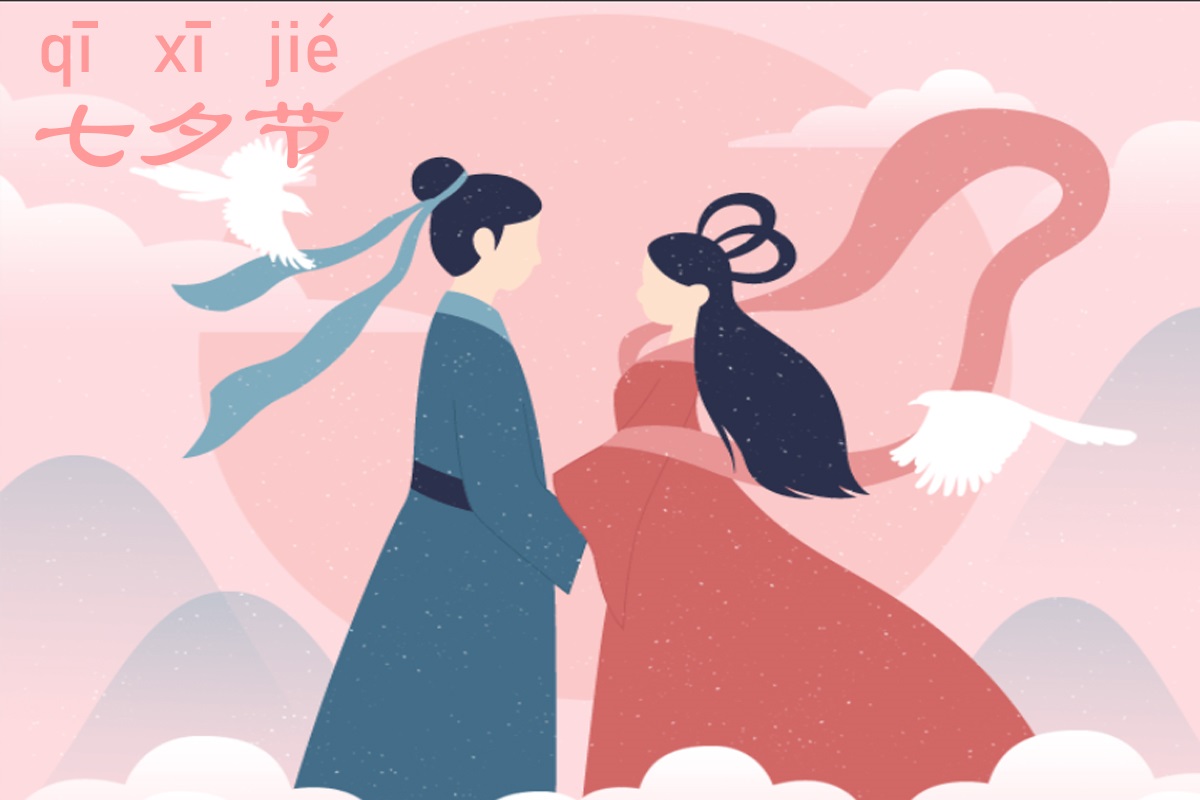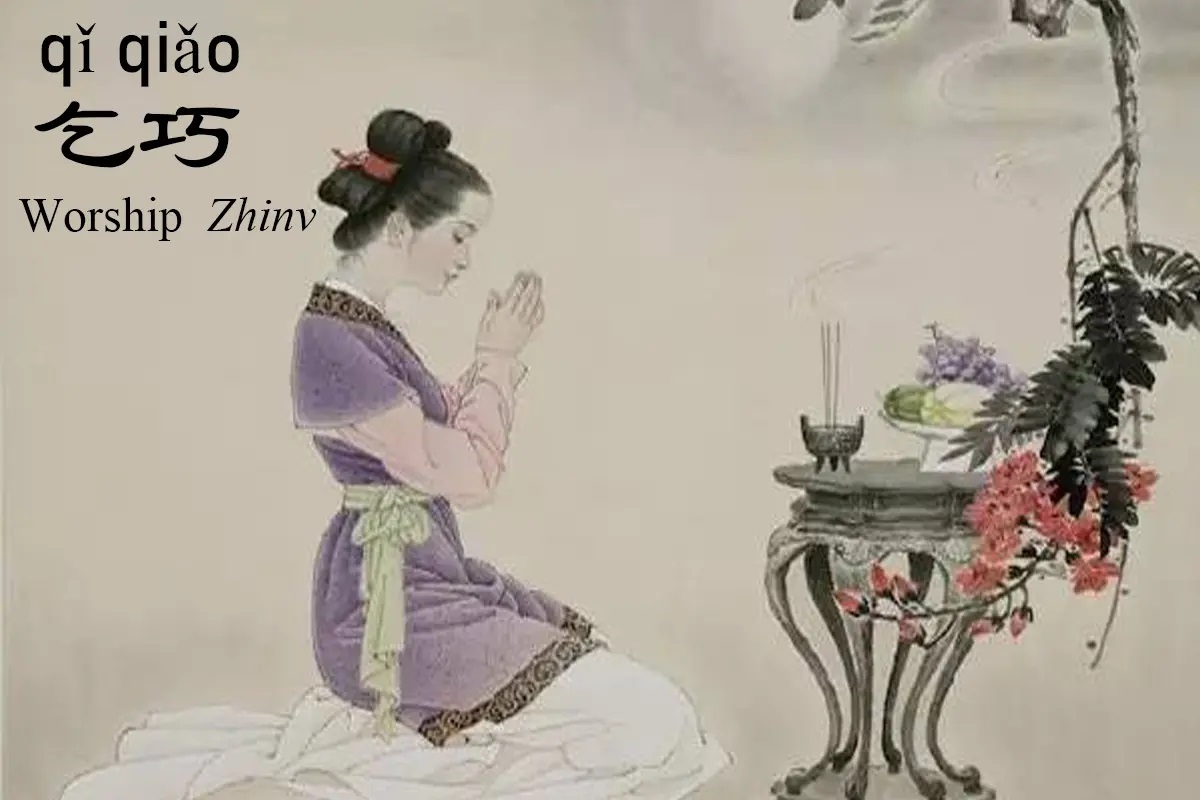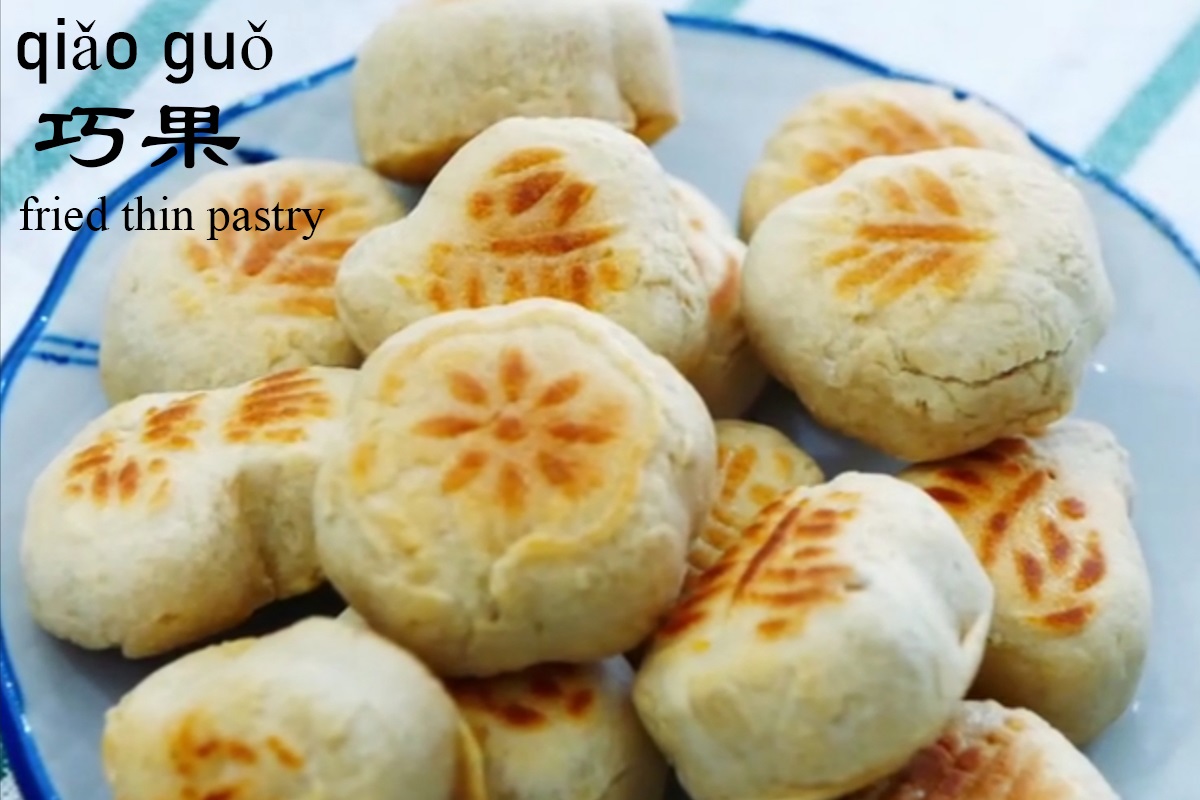Unveiling Qixi: Ancient Chinese Festival of Love and Romance
七夕节(qī xī jié), the Qixi Festival, also known as the Double Seventh Festival, is a traditional Chinese holiday celebrated on the 7th day of the 7th lunar month. It is also called the “Chinese Valentine's Day”, the most romantic festival in China. It often falls in August in the Gregorian calendar, with this year's festival occurring on August 22.

Origin of the Qixi Festival:
The Qixi Festival originated from an ancient love story. Long, long ago, there was a virtuous and kind-hearted man named “牛郎”(niú láng), the cowhand, fell in love with a fairy named “织女”(zhī nǚ), the weaver girl. They married and lived a happy life. Niu Lang farmed in the fields, and Zhi Nü weaved at home. However, their bliss was short-lived as the God of Heaven, Zhi Nü ’s father, was aware of their relationship and grew furious. He ordered the Queen Mother of the Western Heavens to bring Zhi Nü back. Niu Lang, unwilling to be separated from his wife, chased after them relentlessly. To keep them apart, the Queen Mother made a stroke, then a surging river emerged (which later became the Milky Way) to divide them. Fortunately, moved by their loyal love, magpies formed a bridge called the “Magpie Bridge” to allow them to meet once a year on the seventh day of the seventh lunar month, giving rise to the Qixi Festival.
Traditions and Customs of the Qixi Festival:

- Worshiping Zhi Nü: It is said that Zhi Nü has exceptional wisdom and skillful hands. On this day, many girls offer handicrafts using sesame, rice grains, and other crops with seasonal fruits as a prayer to Zhi Nü. They beg for bright heart, knitting skills, as well as a good marriage.
- Skill Competition: Various needlework competitions are held during the festival. For example, women compete to see who can thread seven needles in one thread or try to float a needle on the surface of a bowl of water. The winners are praised for their dexterity and resourcefulness.
- Viewing the Cowherd and Weaver Girl Stars: Looking up at the sky, people can see the Milky Way stretching from the north to the south. On either side of the Milky Way, there are two bright stars, representing the Cowherd star and the Weaver Girl star. They appear to be gazing at each other across the Milky Way.
- Enjoying Delicacies: People indulge in delicious treats during the festival, such as “fried thin pastry”, “巧果”(qiǎo guǒ)in Chinese. These crispy pastries are made with sesame and syrup, offering a delightful and sweet taste. Besides, special dumplings are prepared, hiding coins, silk thread, or red dates inside. Finding a coin signifies good luck, finding silk thread represents acquiring skillful embroidery techniques, and discovering a red date is believed to bring about a fortunate romantic relationship.

Celebrating the Qixi Festival in Modern Times
The Qixi Festival promotes a sincere view of love and marriage, showcasing people's pursuits of ideal romance. It carries forward the traditional virtue of benevolence in Chinese culture. In modern times, many traditional customs are mainly retained in rural areas of China. In urban areas, people celebrate it by exchanging gifts with their loved ones, such as flowers, chocolates, jewelry, and handmade crafts. Moreover, romantic outings like candlelight dinner, or moonlight walk are popular ways to spend the Qixi Festival.
Key Notes: some expressions about the Qixi Festival
- Alternative names of the Qixi Festival: “乞巧节”(qǐ qiǎo jié),the Qiqiao Festival, among which “乞” means begging for something, “巧” means wisdom, and “节” means a festival. It derives from the custom of begging for wisdom and skills.
- the Qixi Festival in poems:
- 七夕今宵看碧霄,牵牛织女渡河桥。——唐·林杰《乞巧》
qī xī jīn xiāo kàn bì xiāo, qiān niú zhī nǚ dù hé qiáo. ——táng ·lín jié 《qǐ qiǎo》
During the Qixi Festival, people lift their heads and gaze at the vast sky, as if they can witness the Cowherd and Weaver Girl crossing the Milky Way and meeting on the Magpie Bridge. ——Tang·Lin Jie “Beseeching for Woman's Dexterity” - 天阶夜色凉如水,坐看牵牛织女星。——唐·杜牧《秋夕》
tiān jiē yè sè liáng rú shuǐ, zuò kàn qiān niú zhī nǚ xīng. ——táng ·dù mù 《qiū xī》
In the coolness of the night, the stone steps are akin to cold water, while one sits silently, gazing at the stars of the Cowherd and Weaver Girl, adorning both sides of the Milky Way. ——Tang·Du Mu “Autumn Night” - 金风玉露一相逢,便胜却人间无数。——宋·秦观 《鹊桥仙》
jīn fēng yù lù yī xiàng féng, biàn shèng què rén jiān wú shù.——sòng ·qín guān 《què qiáo xiān》
The mere availability to reunite on Qixi Festival surpasses countless lovers in this world. ——Song·Qin Guan “Immortal at the Magpie Bridge”